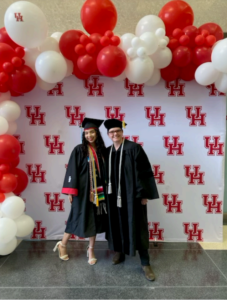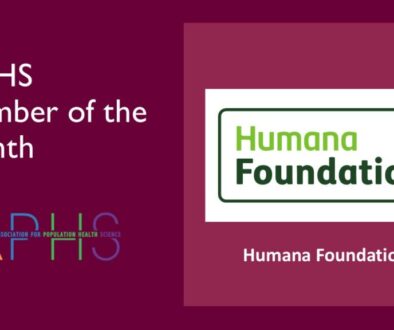Institutional Member of the Month: UH Population Health
Kaori FujishiroTell us about your institution. What is the mission of the institution?
The University of Houston is a large Carnegie designated research-intensive university where “learning meets opportunity”.
UH Population Health is a university-wide interdisciplinary initiative to drive improvement in quality of life through education and training, innovative research, and multi-sector partnerships.
Why did you decide to make the connection between your program and IAPHS?
My name is Bettina Beech, and I have been affiliated with IAPHS since attending the second annual conference in Washington, DC. IAPHS is an ideal organizational home for our interdisciplinary initiative which includes an undergraduate research program and a minor in population health designed for students regardless of their disciplinary focus.

We’d love to hear more about the research your members engage in. What are some themes that run through the research in your program?
Our members are undergraduate students who are learning about research methods and are in the early stages of translating textbook principles into active learning outside of the classroom. The theme of quality of life research resonates throughout the majority of the studies conducted by our student members.
Are there any recent research projects/grants/publications that you’d like to highlight?
Research is a cornerstone for UH Population Health and we have formed collaboratories – synergistic research units in which faculty and students assemble and collaborate to drive discovery to improve quality of life for everyone.
What makes your institution interested in interdisciplinary work?
Interdisciplinary training provides students with the skills to understand and effectively communicate with individuals from other fields. Interdisciplinary work is an important pathway to address and solve ‘many of the wicked problems” that plaque our society. UH Population Health is firmly committed to providing our students with a set of solid foundational skills to equip them to navigate complex issues.
If you do interdisciplinary work, what are the challenges? How would you like to see IAPHS support your institution’s interdisciplinary work?
Our team experiences many of the well-known challenges of interdisciplinary work including communication barriers, the meaningful integration of diverse perspectives and methods, and disciplinary differences in research practices. We remain energized, inspired, and supported by the interdisciplinary work conducted and disseminated by IAPHS members.
Would you like to say something about who is answering the questions? How would the interested IAPHS members be able to contact you?
I am population and public health scientist with experience in family-based chronic disease interventions among African Americans. My work has examined the intergenerational transmission of behavioral, social, environmental risks for cardiovascular and cardiometabolic diseases among African American children, adolescents, parents, and grandparents. I have held several research-oriented leadership roles including Founding Dean of the John D. Bower School of Population Health – the third school of population health in country. I believe in IAPHS and I look forward to serving the organization in any way that I can.
Will you be at the conference this year? If the readers want to reach you, what’s the best way to contact you?
Yes, several members of the UH Population Health staff and faculty plan to attend the 2024 IAPHS annual conference. I can be reached at bmbeech@central.uh.edu




All comments will be reviewed and posted if substantive and of general interest to IAPHS readers.